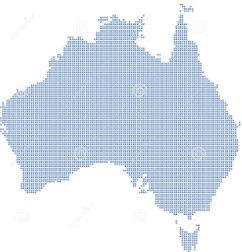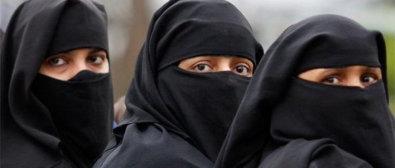
5 minute read
West vs East: MMA
West and East: MMA
By Octavian Ghisa
Advertisement
USA and Europe, UE have been allies for some time now. There has been a lot of cooperation between the two sides both militarily and economically. After former president Donald Trump withdrew from treaties and international organisations, the UE sees the appointment of Joe Biden as a new opportunity to strengthen US-UE relations, in context of new tensions and threats arising in the horizon. Russia
Although Russia has been officially democratic since 1989, they still have some aggressive policies. In 2014, Russia and Ukraine went to war. Russia ended up annexing the regions of Crimea and Don‐bas. This not only created huge tensions between the UE and Russia, but also alerted the USA. Russia has huge leverage over Europe. The gas pipeline, Nord Stream. Europe is very much dependent on Russian gas, so any sort of “intervention” or sanc‐tions might just convince Vladmir Putin to redirect the gas to another place. More recently, Russia has been gathering troops in Crimea. Tanks from Siberia, units of the 76th Air‐borne Division from Pskov are now closer than ever to East Europe. Together this is the largest concen‐tration of forces near the Ukrainian border since 2014. All this indicates a large-scale invasion. Fight‐ings might spark the East plains alive, with Ukrainian soldiers trying their hardest to protect their home. All this causes tensions in relations with the West The West
Who is the West? USA, with their newly appointed president Joe Biden, and the UE. They have to take some sort of action if Russia is to become an ag‐gressor again. Russia could face severe penalties such as being banned out of the international finan‐cial system, causing a huge economical upset. Joe Biden has been prompted by Russian activity to call President Vladimir Putin, proposing that the two hold a summit to discuss the full range of the issues. The Geneva Summit

The two finally met in Geneva, Switzerland on the 16th of June for the summit. Geneva was selected as the location because of the past encounters be‐tween US president Ronald Reagan and Soviet leader Gorbachev back during the Cold War. The talks were cold, and the relations between the two were rock bottom. The Summit itself had the purpose to stabilise the situation. They discussed some topics such as: diplomacy, arms control, elec‐tions and cyber-attacks but also Ukraine. Putin has baulked at the idea of Ukrainian membership in NATO. Russian Strategy
What are they actually doing? There seemingly is not much logic behind the Kremlin's actions. They might repeat the tactic played in 2014 where they threw loads of significant military resources towards the invasion of Crimea, and then sit down for politi‐cal negotiations in order to get their candy. This is what happened at the Minsk agreements. Ukraine did not have much choice in negotiations being with their back against the wall, with casualties. Russia could also use the provocation card, which has worked in the past, and then blackmail Europe with cutting the gas supply. There is no way to be sure what the Kremlin’s future actions will be. Surely, Putin knows that immense consequences will appear if any aggression against Ukraine con‐tinues. Now what?
This is a crucial obstacle in the path of the United States and Europe. They have to be strong and not crumble in front of Putin’s challenges. The security and stability of Europe are on the line.
Mali and France
By Rares Zavaleanu
France suspends military ties with Mali over coup
.Following the second coup d'etat in Mali in nine months, France has halted joint military operations with Mali's army. The decision, reached after consultation with Mali's authorities and military, will be reviewed in the coming weeks, according to the French Defense Ministry. "Requirements and red lines have been set by the Economic Com‐munity of West African States (ECOWAS) and the African Union to clarify the framework for the political transition in Mali," the state‐ment said. "While awaiting these guarantees, France has decided to suspend, as a temporary measure, joint military operations with Malian forces." It's unclear whether the move means that French troops would stay in the West African country until a new decision is made. At the begging of June, the French President Emmanuel Macron issued a warning to Mali, saying that if the country's internal turmoil continued, it would lead to an upsurge in Islamist bloodshed. According to the Journal du Dimanche, Macron stated that the West African country is "heading toward" increasing Islamist dominance. As part of an anti-terror operation against extremists, France presently has 5,100 troops in the Sahel region. Since 2013, the French military has been assisting forces in Mali, Mauritania, Niger, Burkina Faso, and Chad. What is going on in Mali?
Colonel Assimi Gota, the coup leader, was named interim president by the constitutional court last month, two days after declaring him‐self interim president. He defended President Bah Ndaw and Prime Minister Moctar Ouane's removal, claiming that it was essential since they had failed to fulfill their responsibilities and were attempting to disrupt the country's transition. After a cabinet reshuffle that Col Gota claimed he was not consulted about, soldiers arrested and held the two men. He also orchestrated the August coup that saw elected President Ibrahim Boubacar Keta deposed. Col Gota has now guaranteed that a new prime minister will be se‐lected in the coming days, and that elections will take place as planned next year. Mali’s isolation The International Organization of La Francophonie, a cooperative organisa‐tion that includes primarily French-speak‐ing countries around the world, has joined calls for Mali to return to civilian rule by suspending the country from the organization until democracy is restored. Members gathered in Paris on May 24 "strongly condemned" the coup orches‐trated by military strongman Assimi Goita, according to a statement from the group. Why is Mali in such an unstable state? Mali is a big, landlocked former French territory with many poor and undevel‐oped areas. Following a coup in 2012, radical Is‐lamists took advantage of the disarray and seized control of the country's north. Although French troops assisted in the retaking of land, rebels have continued to assault, taking advantage of the region's political turmoil. As a result, popular trust in the army's ability to combat the Islamist insurgency that has spread to neighboring Burkina Faso and Niger has waned






